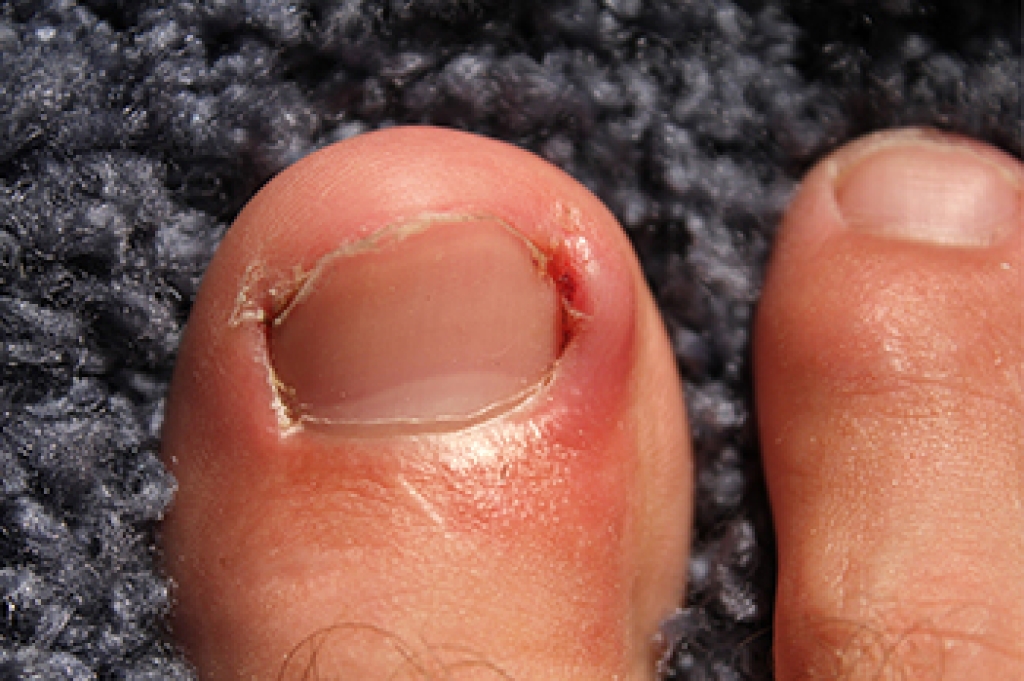
Ingrown toenails occur when the edge of a toenail grows into the surrounding skin, causing pain, redness, and swelling. This condition often affects the big toe and is typically caused by improper nail trimming, wearing tight shoes, or injury. Other factors, such as fungal infections or having naturally curved nails, can also contribute to the problem. Symptoms include sharp pain at the edge of the nail, tenderness, swelling, and, in some cases, pus or drainage if an infection develops. The pain may worsen when wearing shoes or walking, making daily activities uncomfortable. A podiatrist can diagnose an ingrown toenail through a physical exam. Treatment may involve gently lifting the nail, or, if necessary, removing part of the nail to relieve pressure. If an infection is present, antibiotics may be prescribed. For recurring cases, a minor procedure to permanently remove the nail or nail root might be recommended. If you have this condition, it is suggested that you schedule an appointment with a podiatrist for proper treatment.
Ingrown toenails may initially present themselves as a minor discomfort, but they may progress into an infection in the skin without proper treatment. For more information about ingrown toenails, contact one of our podiatrists of Associates in Podiatry, PC. Our doctors can provide the care you need to keep you pain-free and on your feet.
Ingrown Toenails
Ingrown toenails are caused when the corner or side of a toenail grows into the soft flesh surrounding it. They often result in redness, swelling, pain, and in some cases, infection. This condition typically affects the big toe and may recur if it is not treated properly.
Causes
- Improper toenail trimming
- Genetics
- Improper shoe fitting
- Injury from pedicures or nail picking
- Abnormal gait
- Poor hygiene
You are more likely to develop an ingrown toenail if you are obese, have diabetes, arthritis, or have any fungal infection in your nails. Additionally, people who have foot or toe deformities are at a higher risk of developing an ingrown toenail.
Symptoms
Some symptoms of ingrown toenails are redness, swelling, and pain. In rare cases, there may be a yellowish drainage coming from the nail.
Treatment
Ignoring an ingrown toenail can have serious complications. Infections of the nail border can progress to a deeper soft-tissue infection, which can then turn into a bone infection. You should always speak with your podiatrist if you suspect you have an ingrown toenail, especially if you have diabetes or poor circulation.
If you have any questions, please feel free to contact our offices located in Pittsburgh-South Hills, and Pittsburgh-Bellevue, PA . We offer the newest diagnostic and treatment technologies for all your foot care needs.
